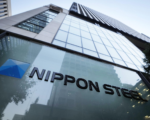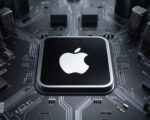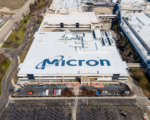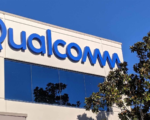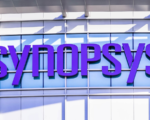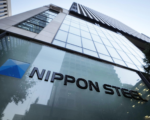Cerebras IPO Faces Challenges as AI Chipmaker Tries to Rival Nvidia
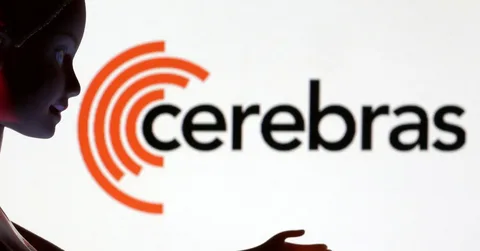
Cerebras Systems, an artificial intelligence (AI) chipmaker, is aiming to be the first major tech company in the U.S. to go public since April 2024. As the AI infrastructure market continues to boom, driven by the astronomical success of Nvidia, Cerebras hopes to ride the wave of investor enthusiasm for AI technologies. However, the company faces significant hurdles, particularly its heavy reliance on a single customer and the risks associated with foreign investment, which could hinder its IPO.
The Cerebras Opportunity
Founded in 2016 and headquartered in Sunnyvale, California, Cerebras has positioned itself as an innovative player in the AI hardware market. The company claims its chips outperform Nvidia’s GPUs in training large language models—an essential task in AI. In fact, Cerebras has seen impressive growth, with sales tripling to $78.7 million in 2023, and revenue reaching $136.4 million in the first half of 2024. The company has secured contracts to sell $1.43 billion in AI systems and services, a significant boost for its growth trajectory.
Cerebras’ most advanced chip, the WSE-3 (Wafer Scale Engine 3), is hailed as the fastest AI processor globally, boasting 4 trillion transistors. It’s designed to handle massive computational tasks with greater efficiency than competing chips, including Nvidia’s.
Customer Concentration and Foreign Investment Concerns
Despite its technological advances, Cerebras’ reliance on a single client raises red flags for investors. G42, a company based in Abu Dhabi, accounted for 87% of Cerebras’ revenue in the first half of 2024. G42, backed by Microsoft, has committed to purchasing $1.43 billion worth of systems from Cerebras. However, this heavy dependence on one customer leaves the company vulnerable to revenue fluctuations if G42 fails to meet its obligations.
Moreover, G42 is also a significant investor in Cerebras. The Middle Eastern company has agreed to purchase a $335 million stake by April 2024, which would make it Cerebras’ largest shareholder. G42 can buy an additional $500 million in shares if it commits to spending $5 billion on Cerebras’ computing clusters. This foreign investment has raised concerns with U.S. regulators. Cerebras is currently seeking approval from the Treasury Department’s Committee on Foreign Investment in the U.S. (CFIUS) to ensure there are no national security risks associated with G42’s involvement.
The CFIUS review could potentially delay Cerebras’ IPO, as reported by sources familiar with the matter. Adding to the uncertainty, U.S. lawmakers have expressed concerns about G42’s previous business ties with Chinese companies, raising further scrutiny of its involvement.
Skepticism Among Wall Street Banks
Major Wall Street banks have been noticeably absent from Cerebras’ IPO deal, which is being led by Citigroup and Barclays. Banks such as Goldman Sachs, JPMorgan Chase, and Morgan Stanley, which typically dominate tech IPOs, have stayed away, reportedly due to the risks tied to Cerebras’ customer concentration and foreign investment concerns. The absence of these banks may further erode investor confidence.
In addition, Cerebras’ auditor, BDO, is not part of the Big Four accounting firms, which typically audit the largest tech IPOs. This adds another layer of uncertainty for potential investors.
Competitive Landscape and Financial Struggles
Cerebras is entering a highly competitive space dominated by Nvidia, which controls 95% of the AI chip market, according to Mizuho Securities. Nvidia’s chips are critical to training models like OpenAI’s GPT-4, and the company is seen as a cash machine in the AI boom. Nvidia’s strong market position and profitability present a significant challenge for Cerebras, which is still not profitable.
In the second quarter of 2024, Cerebras posted a net loss of $51 million. Although it is approaching breakeven on an operating basis (excluding stock-based compensation), the company still faces financial headwinds as it tries to scale up.
Investor Outlook
Despite these challenges, some investors are intrigued by Cerebras’ potential. For instance, Jim Fitch, a retired investor, sees promise in the company’s AI chip technology. Fitch, who sold his Nvidia stock years ago, is excited about the WSE-3 chip, believing it could revolutionize AI computing.
While Cerebras has hurdles to overcome—including regulatory scrutiny, customer dependence, and competition from Nvidia—the excitement surrounding AI technologies keeps the door open for a successful IPO. If the company can navigate these challenges and tap into the growing demand for AI infrastructure, it may still find a path to Wall Street, despite the risks involved.






